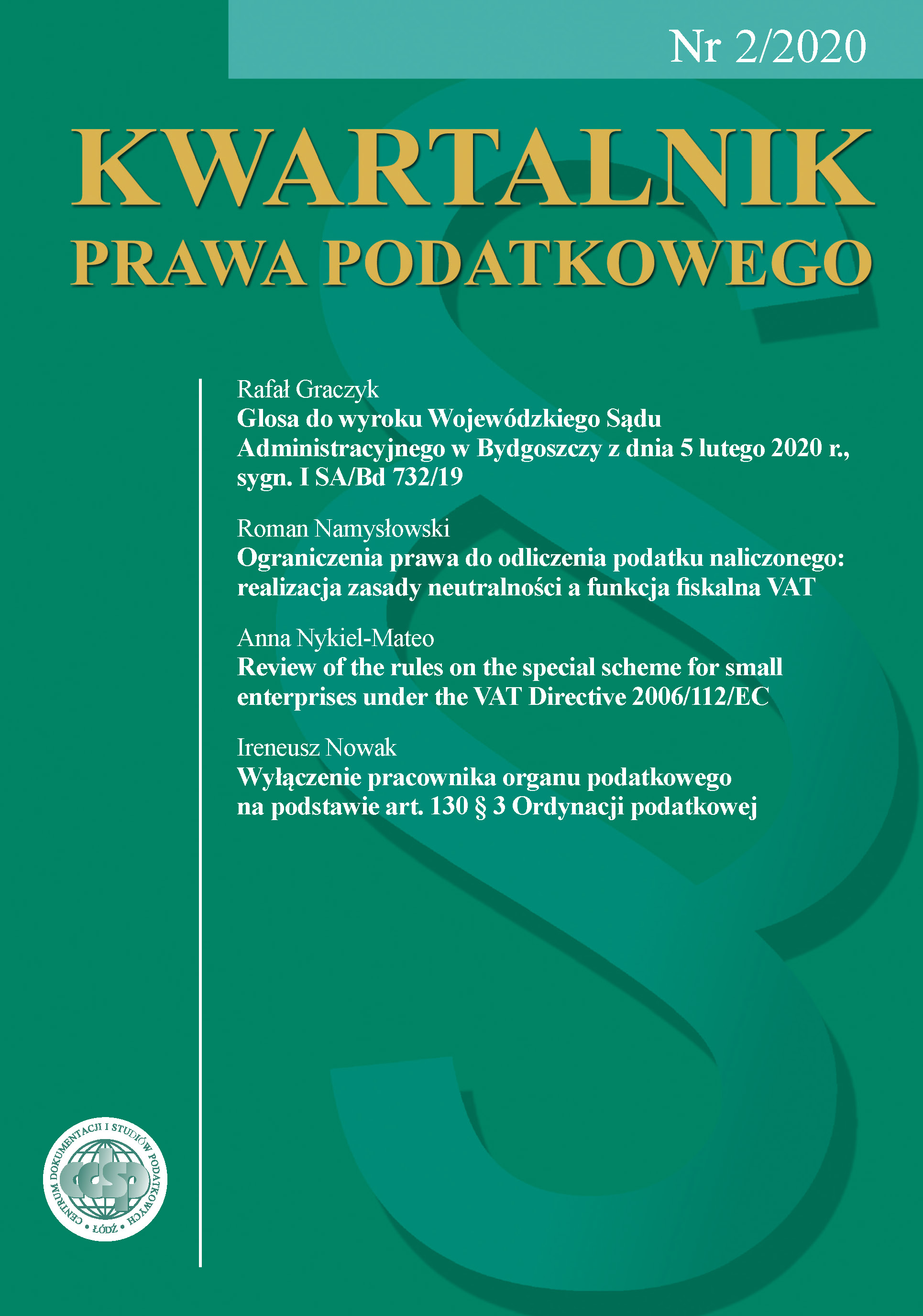Limitation of VAT deductibility versus fiscal function of the tax on goods and services – selected issues
DOI:
https://doi.org/10.18778/1509-877X.2020.02.02Keywords:
neutrality principle, fiscal function, tax on goods and services, value added tax, limitation of VAT deductibility, restaurant services, accommodation servicesAbstract
It follows from the analysis that there is some tension between the implementation of the principle of neutrality and the fiscal function of the tax on goods and services as a type of value added tax binding in the European Union. It is true that our legislation should follow EU law, which Poland as EU Member is obliged to follow. Nevertheless, in some areas the Member State has the freedom to form its own tax system. With regard to this freedom, as is clear from the analysis, the basic criterion in the decision process with respect to the change in the tax on goods and services is the fiscal function of the tax. Of course, the need to ensure budget revenue at a certain level will always be a priority for every state authority. However, the fiscal function of the tax on goods and services should always be set against the need to comply with one of the fundamental features of this tax, i.e. the principle of neutrality which means i.a. the right to deduct input VAT on goods and services connected with taxable activity. This shows that the extent to which the principle of neutrality in the construction of the tax on goods and services is followed has a significant impact on the fulfillment of the fiscal function of that tax.
Downloads
References
Aizenman J., Jinjarak Y., The Collection Efficiency of the Value Added Tax: Theory and International Evidence, „The Journal of International Trade & Economic Development” 2006, nr 15/2, https://doi.org/10.3386/w11539
Google Scholar
DOI: https://doi.org/10.3386/w11539
Famulska T., Teoretyczne i praktyczne aspekty funkcjonowania podatku od wartości dodanej, Katowice 2007.
Google Scholar
Hybka M.M., Determinanty wydajności fiskalnej podatku od wartości dodanej w Niemczech, Poznań 2011.
Google Scholar
James K., The Rise of the Value-Added Tax, Cambridge 2015, https://doi.org/10.1017/CBO9781107358522
Google Scholar
DOI: https://doi.org/10.1017/CBO9781107358522
Dyrektywa Rady 2006/112/WE z dnia 28 listopada 2006 r. w sprawie wspólnego systemu podatku od wartości dodanej (Dz. Urz. UE L 347 z dnia 11 grudnia 2006 r.)
Google Scholar
VI Dyrektywa Rady 77/388/EWG z dnia 17 maja 1977 r. w sprawie harmonizacji przepisów Państw Członkowskich w zakresie podatków obrotowych – wspólny system podatku od wartości dodanej: ujednolicona podstawa wymiaru podatku (Dz. Urz. WE L 145 z dnia 13 czerwca 1977 r.).
Google Scholar
Ustawa z dnia 11 marca 2004 r. o podatku od towarów i usług (tekst jedn. Dz.U. z 2020 r., poz. 106 ze zm.).
Google Scholar
Downloads
Published
How to Cite
Issue
Section
License

This work is licensed under a Creative Commons Attribution-NonCommercial-NoDerivatives 4.0 International License.
PlumX metrics









